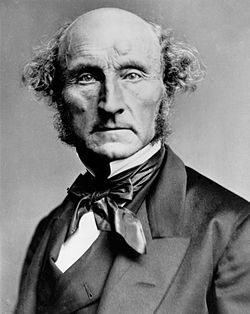John Stuart Mill Quote
All women are brought up from the very earliest years in the belief that their ideal of character is the very opposite to that of men; not self-will,and government by self-control, but submission and yielding to the control of others. All the moralities tell them that it is their nature to live fir others;to make complete abnegation of themselves,and to have no life but in their affections.
John Stuart Mill
All women are brought up from the very earliest years in the belief that their ideal of character is the very opposite to that of men; not self-will,and government by self-control, but submission and yielding to the control of others. All the moralities tell them that it is their nature to live fir others;to make complete abnegation of themselves,and to have no life but in their affections.
Tags:
feminism
Related Quotes
The confusion boys experience about their identity is heightened during adolescence. In many ways the fact that today's boy often has a wider range of emotional expression in early childhood, but if f...
Bell Hooks
Tags:
adolescence, bell hooks, feminism, feminist, masculinity, men, men and women, mental illness, murder, teenagers
About John Stuart Mill
John Stuart Mill (20 May 1806 – 7 May 1873) was an English philosopher, political economist, politician and civil servant. One of the most influential thinkers in the history of liberalism, he contributed widely to social theory, political theory, and political economy. Dubbed "the most influential English-speaking philosopher of the nineteenth century" by the Stanford Encyclopedia of Philosophy, he conceived of liberty as justifying the freedom of the individual in opposition to unlimited state and social control. He advocated political and social reforms such as proportional representation, the emancipation of women, and the development of labour organisations and farm cooperatives. The Columbia Encyclopedia describes Mill as occasionally coming "close to socialism, a theory repugnant to his predecessors." He was a proponent of utilitarianism, an ethical theory developed by his predecessor Jeremy Bentham. He contributed to the investigation of scientific methodology, though his knowledge of the topic was based on the writings of others, notably William Whewell, John Herschel, and Auguste Comte, and research carried out for Mill by Alexander Bain. He engaged in written debate with Whewell.
A member of the Liberal Party and author of the early feminist work The Subjection of Women, Mill was also the second Member of Parliament to call for women's suffrage after Henry Hunt in 1832.
A member of the Liberal Party and author of the early feminist work The Subjection of Women, Mill was also the second Member of Parliament to call for women's suffrage after Henry Hunt in 1832.
